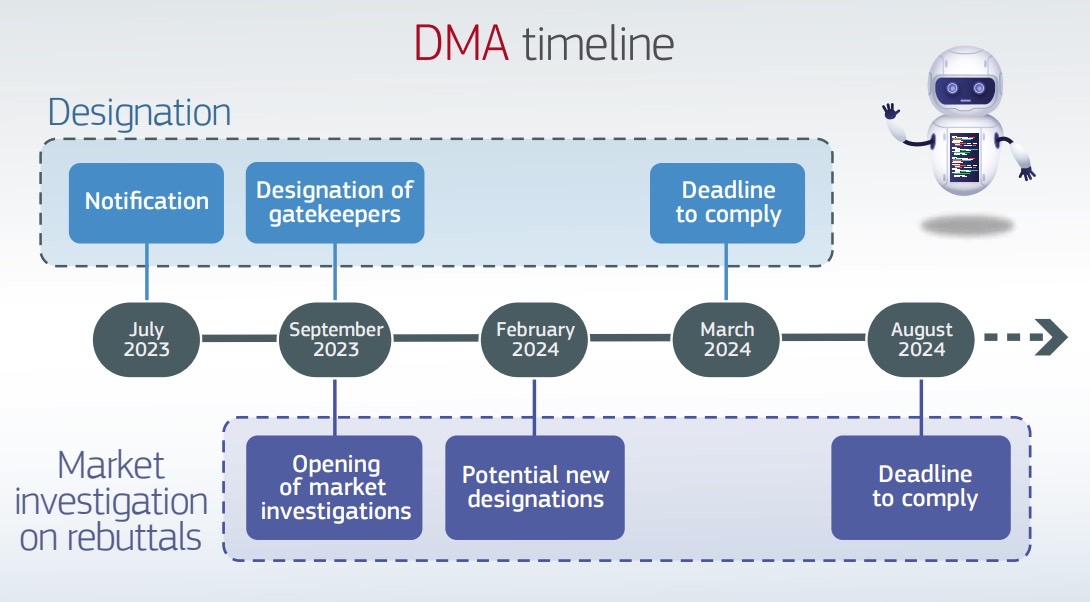Adverts
Apple may not like it, but it will have to support sideloading and third-party app stores on the iPhone in the coming months. Everything is happening in Europe, where the Digital Markets Act (DMA) is in force. Antitrust law aimed at protecting consumers and increasing competition has already mandated the first round of gatekeeper companies and technology products. Apple, iOS, App Store and Safari are on that list.
As a result, Apple will have to make changes to the iPhone's software to meet its new obligations under the DMA. For the App Store, it will likely be necessary to allow other companies to compete with their own app stores. Apple will also have to support third-party payment systems in Europe.
Adverts
Sideloading will practically happen as soon as Apple starts making changes to iOS 17. Consumers will have to be able to download apps from any source, not just digital repositories like the App Store and third-party equivalents.
Apple may have already started work on bringing these features to the iPhone soon. The iOS 17.2 beta has code indicating support for sideloading and third-party app stores. But even if it's real, Apple isn't ready to confirm it.
Looking at the iOS 17.2 beta code, 9to5Mac found evidence to suggest that Apple is preparing to support installing apps from sources other than the App Store.
iOS 17.2 comes with a new public framework called “Managed App Distribution”. The blog speculated that the feature could be linked to MDM solutions for installing corporate applications. This is a feature that iOS already supports. But the code can support installing other applications:
When analyzing the new API, we learned that it has an extension endpoint declared in the system, which means that other applications can create extensions of this type. Going even further, we found a new and unused right that will give third-party apps permission to install other apps. In other words, this would allow developers to create their own app stores.
The API has basic controls for downloading, installing, and even updating applications from external sources. You can also check whether an app is compatible with a specific device or iOS version, which the App Store already does. Again, this could easily be used to modernize MDM solutions, but here's another thing.

Furthermore, 9to5Mac found evidence of a region lock in the API. This also fits the current narrative. Once Apple opens the iPhone to third-party app stores and sideloading, the features will be locked to the EU. This is the only region that requires Apple to support these features. Region locking doesn't make sense for MDM functionality.
Since the report was published, Apple has published new documentation for the ManagedAppDistribution API that shows that the new iOS 17.2 beta functionality targets MDM app distribution. But I wouldn't be surprised if Apple tried to hide sideloading support in iOS while it tests it.
A report of Bloomberg Apple Inc. said on Friday that Apple is trying to appeal the EU's gatekeeper designation for the App Store. It will also argue that iMessage, which is not a gatekeeper at the moment, should not be subject to closer scrutiny. The EU will issue a ruling on iMessage being a gatekeeper service by February.
Apple has until November 16 to file an appeal. This would explain why Apple is also preparing iOS to support sideloading. Apple has until March to open the iPhone to competitors. Also, keep in mind that Apple acknowledged in a filing with the SEC that iPhone support for third-party app stores and sideloading may be unavoidable in some markets. And this could impact its revenue in the region.
Separately, Bloomberg Mark Gurman said in his Power On newsletter (via MacRumors) that iPhone app sideloading is coming next year. Gurman said Apple would offer users a “highly controlled system” for installing apps from sources other than the App Store. The feature will only work in the EU, where Apple will make other changes to iOS to comply with the DMA.
I think Apple will want to test the sideloading feature well before rolling it out to Europeans. That's why we can see this for the first time in the iOS 17.2 code.
—————-
Apple may not like it, but it will have to support sideloading and third-party app stores on the iPhone in the coming months. Everything is happening in Europe, where the Digital Markets Act (DMA) is in force. Antitrust law aimed at protecting consumers and increasing competition has already mandated the first round of gatekeeper companies and technology products. Apple, iOS, App Store and Safari are on that list.
As a result, Apple will have to make changes to the iPhone's software to meet its new obligations under the DMA. For the App Store, it will likely be necessary to allow other companies to compete with their own app stores. Apple will also have to support third-party payment systems in Europe.
Sideloading will practically happen as soon as Apple starts making changes to iOS 17. Consumers will have to be able to download apps from any source, not just digital repositories like the App Store and third-party equivalents.
Apple may have already started work on bringing these features to the iPhone soon. The iOS 17.2 beta has code indicating support for sideloading and third-party app stores. But even if it's real, Apple isn't ready to confirm it.
Looking at the iOS 17.2 beta code, 9to5Mac found evidence to suggest that Apple is preparing to support installing apps from sources other than the App Store.
iOS 17.2 comes with a new public framework called “Managed App Distribution”. The blog speculated that the feature could be linked to MDM solutions for installing corporate applications. This is a feature that iOS already supports. But the code can support installing other applications:
When analyzing the new API, we learned that it has an extension endpoint declared in the system, which means that other applications can create extensions of this type. Going even further, we found a new and unused right that will give third-party apps permission to install other apps. In other words, this would allow developers to create their own app stores.
The API has basic controls for downloading, installing, and even updating applications from external sources. You can also check whether an app is compatible with a specific device or iOS version, which the App Store already does. Again, this could easily be used to modernize MDM solutions, but here's another thing.

Furthermore, 9to5Mac found evidence of a region lock in the API. This also fits the current narrative. Once Apple opens the iPhone to third-party app stores and sideloading, the features will be locked to the EU. This is the only region that requires Apple to support these features. Region locking doesn't make sense for MDM functionality.
Since the report was published, Apple has published new documentation for the ManagedAppDistribution API that shows that the new iOS 17.2 beta functionality targets MDM app distribution. But I wouldn't be surprised if Apple tried to hide sideloading support in iOS while it tests it.
A report of Bloomberg said on Friday that Apple is trying to appeal the EU's gatekeeper designation for the App Store. It will also argue that iMessage, which is not a gatekeeper at the moment, should not be subject to closer scrutiny. The EU will issue a ruling on iMessage being a gatekeeper service by February.
Apple has until November 16 to file an appeal. This would explain why Apple is also preparing iOS to support sideloading. Apple has until March to open the iPhone to competitors. Also, keep in mind that Apple acknowledged in a filing with the SEC that iPhone support for third-party app stores and sideloading may be unavoidable in some markets. And this could impact its revenue in the region.
Separately, Bloomberg Mark Gurman said in his Power On newsletter (via MacRumors) that iPhone app sideloading is coming next year. Gurman said Apple would offer users a “highly controlled system” for installing apps from sources other than the App Store. The feature will only work in the EU, where Apple will make other changes to iOS to comply with the DMA.
I think Apple will want to test the sideloading feature well before rolling it out to Europeans. That's why we can see this for the first time in the iOS 17.2 code.



